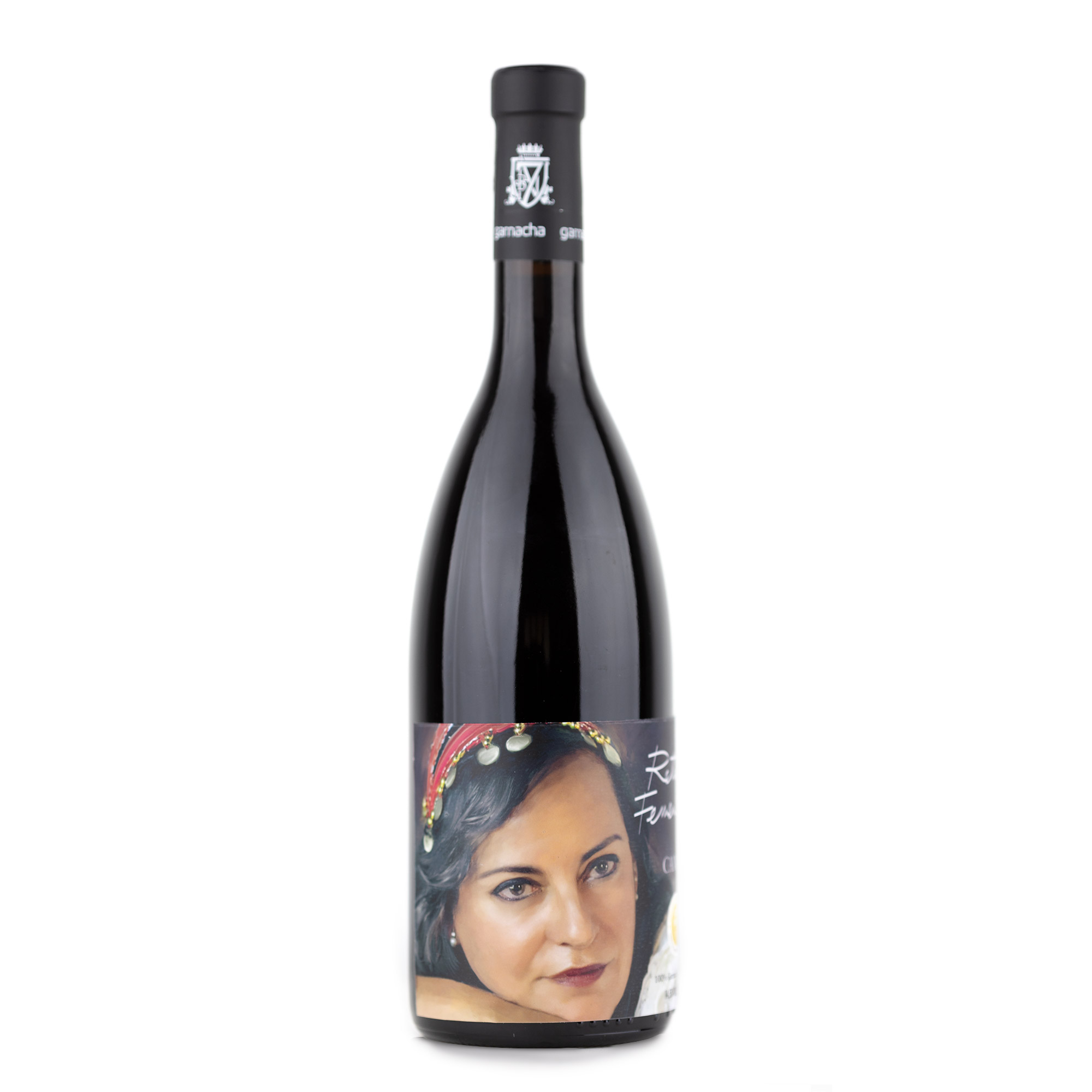Dawn
Dawn is an artwork by Séfora Camazano. This remarkable piece is an original Giglée Fine Art print on a 100% acid-free cotton canvas and acrylic painting, measuring 100 x 81 cm. Crafted in the year 2024, it is part of the “Female Portraits: Looking Back to the Past” collection.
The painting is a portrait of Sharifa. She appears in a medium shot, seated, illuminated from her right side. She wears a black hat and a long-sleeved black blouse over a white one, from which her neck can be seen. Her right arm is akimbo, with her hand resting on her waist, while she holds two elegant burgundy leather gloves; her left arm extends naturally over her leg.
Her hair, tucked inside the hat, is barely visible, and her gaze, serene, is directed towards the spectator. Her delicate and illuminated face stands out against the background of the composition, in dark tones and undefined brushstrokes, where a gray wall and a desaturated brown floor can be seen. This composition offers an enigmatic image, marked by strong contrasts between the beauty and elegance of Sharifa and the simplicity of her surroundings, inviting the spectator to explore her story with curiosity.
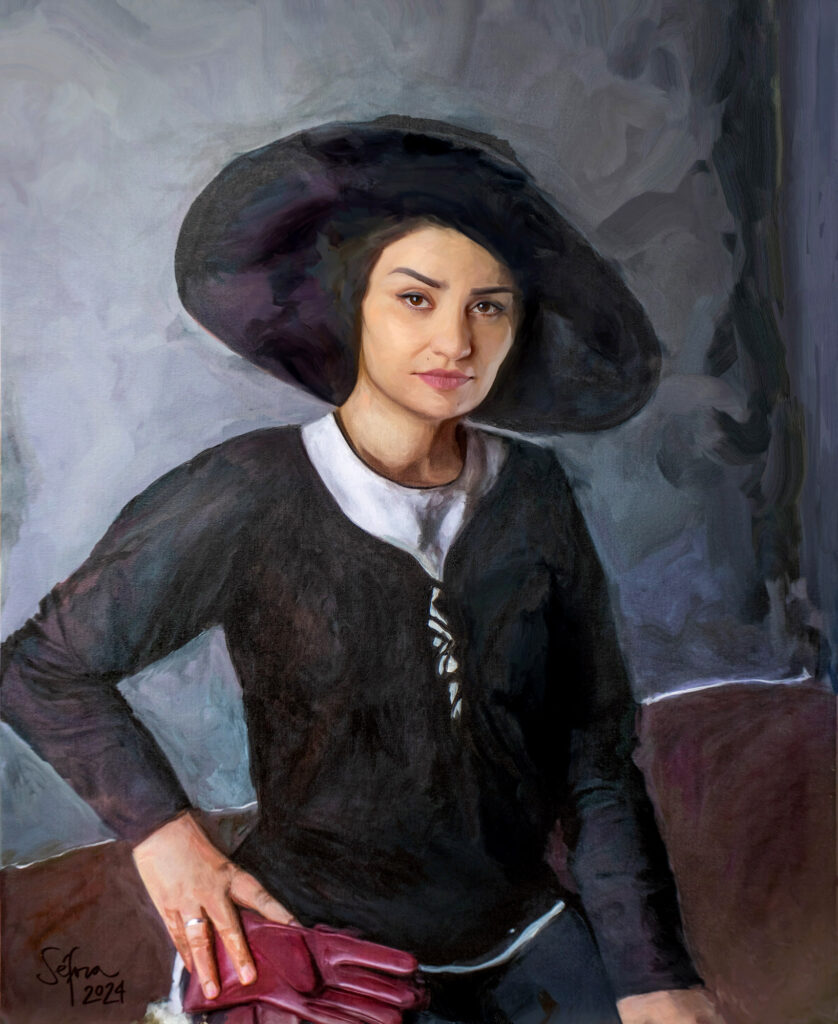
Sharifa is an Afghan woman who was forced to marry an older man at the age of fifteen due to difficult family circumstances. Her sick father believed she would be better cared for if she had a husband and a new family.
During her marriage, she faced numerous challenges and abuses, being just a girl without life experience. She gave birth to five children, two of whom have died. The situation worsened for Sharifa and her family when the Taliban took control of Afghanistan, as her husband worked as a translator for Spanish troops deployed in the country.
Faced with increasing threats, her husband fled to Pakistan, and she clandestinely fled to Iran with her three children and her mother-in-law, who was seriously injured during the journey. The family was arrested, suffered abuse from the Iranian police, and lived in extremely precarious conditions, without water or sufficient food for their children. Finally, they managed to reach Spain thanks to government intervention. Despite current challenges, such as overcoming the language barrier, finding employment and housing, Sharifa feels grateful for the freedom and security she now enjoys compared to the oppression women suffered under the Taliban regime in her country.
“Dawn” represents the history of Sharifa, symbolizing her new life and a future far from the horror of Islamic fundamentalism and the violence against women in Afghanistan.
The artwork production
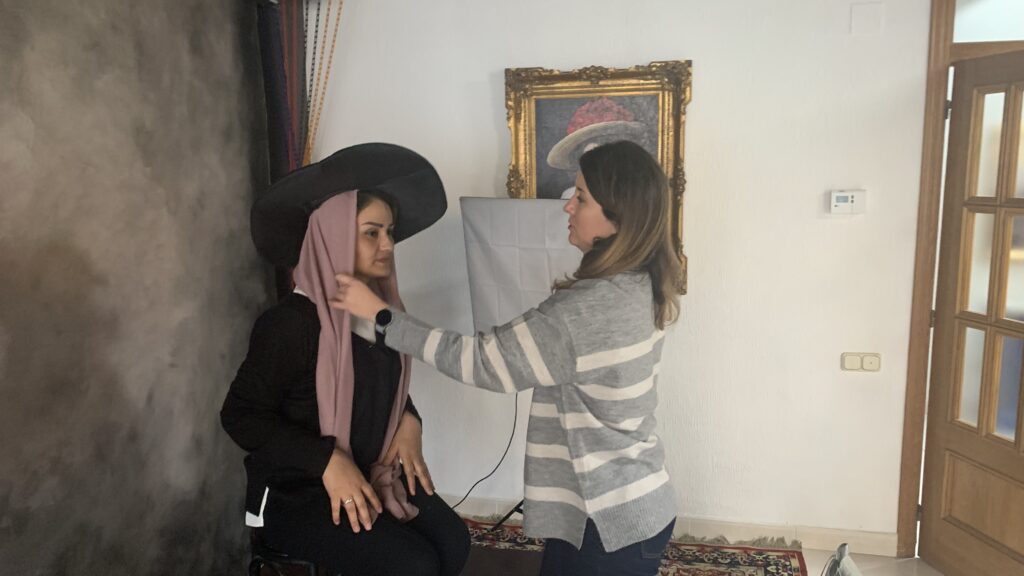
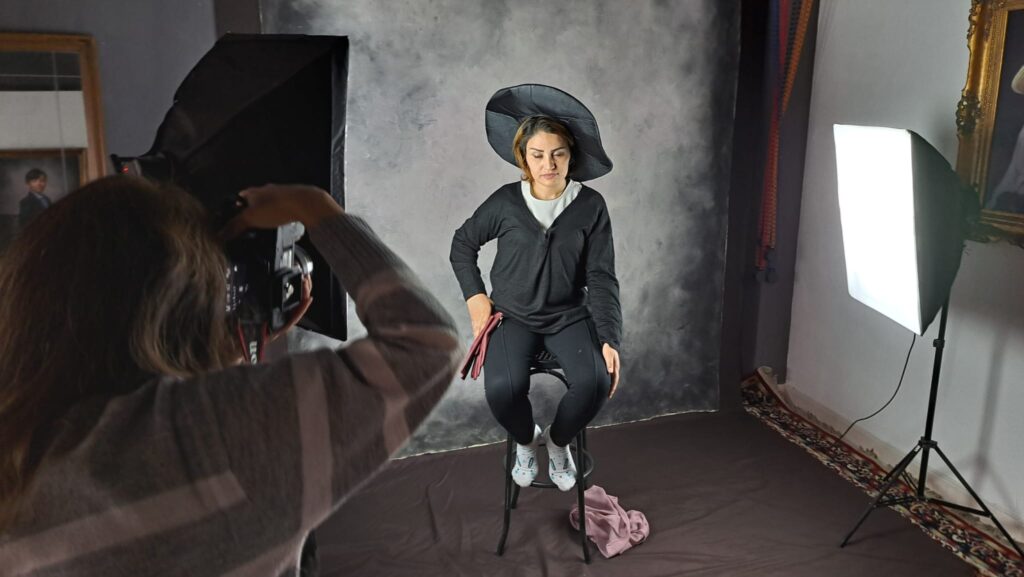
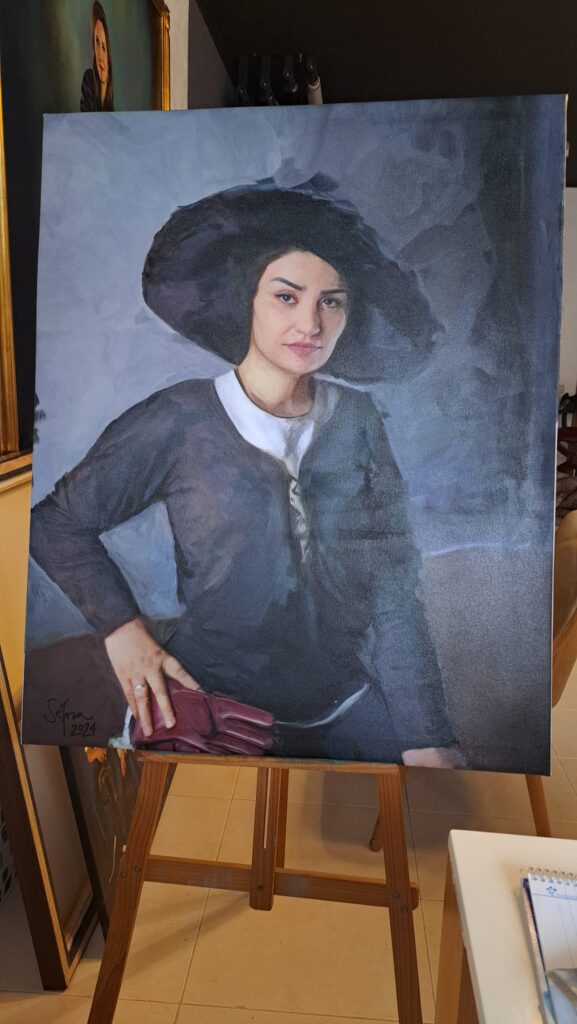
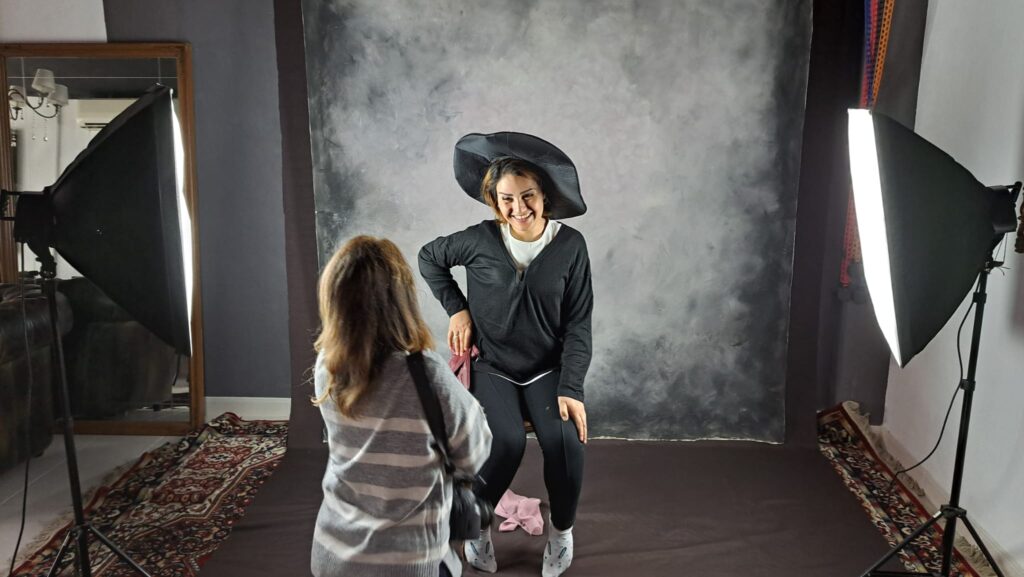
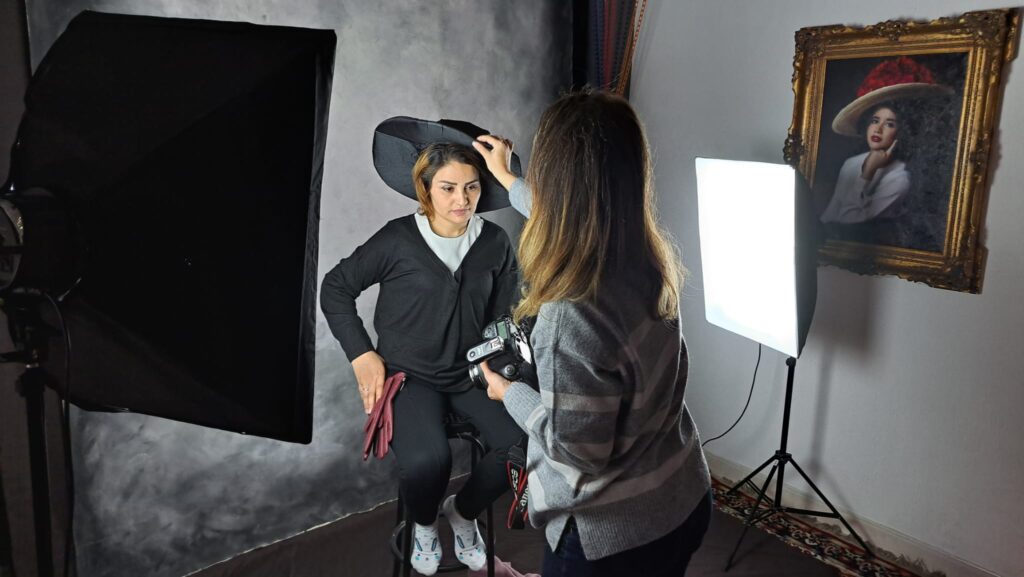
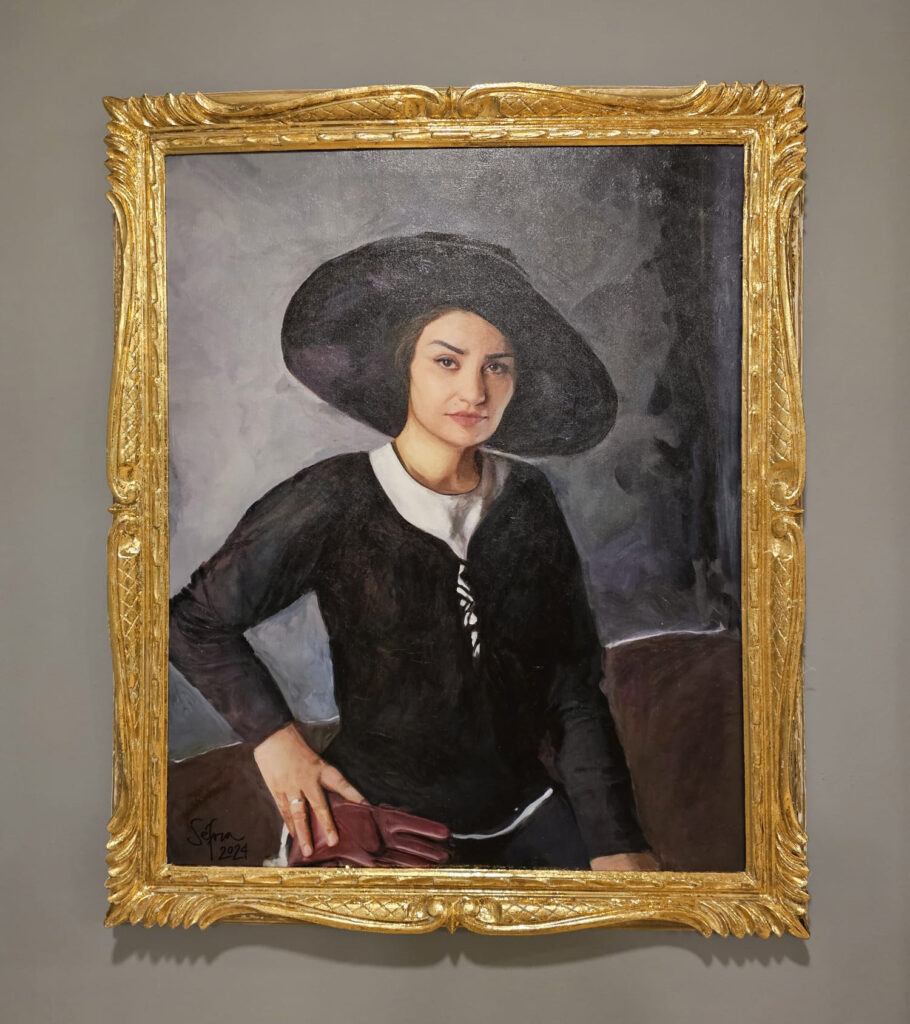
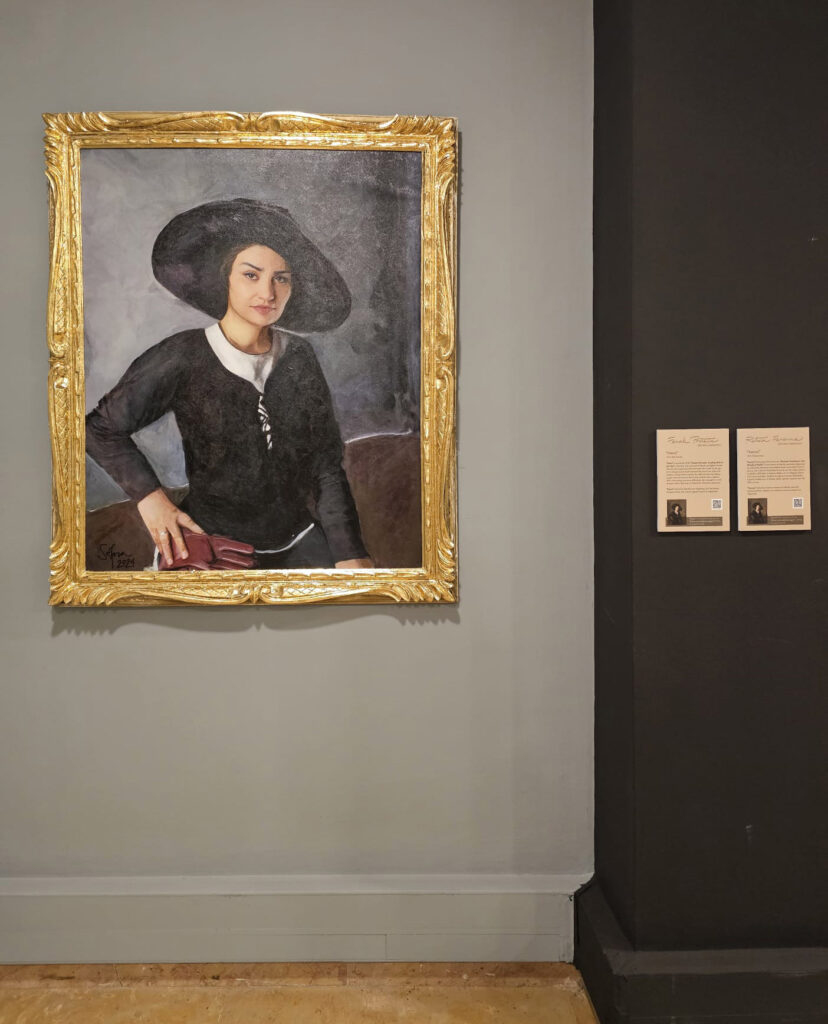
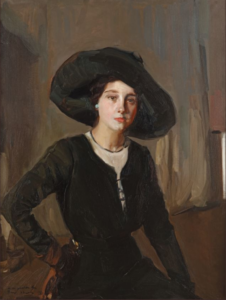
Dawn was inspired on the artwork Elena con Sombrero Negro (1910), by Joaquín Sorolla.


